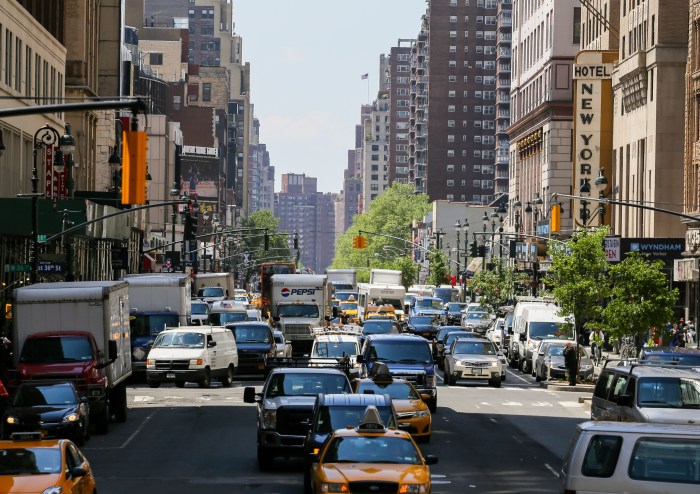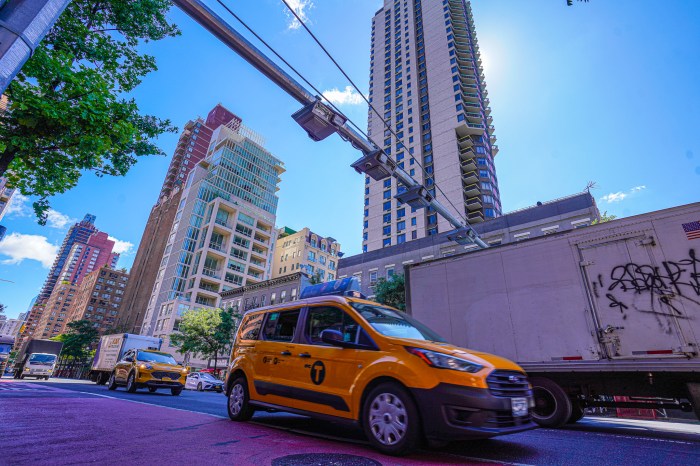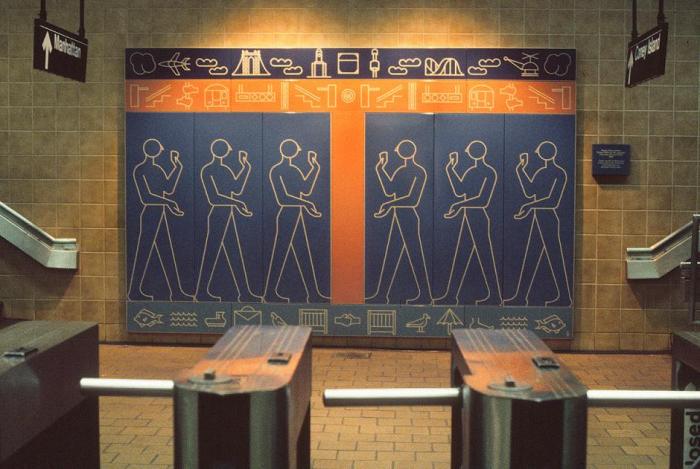Cold temperatures, snow-filled streets and other winter woes didn’t keep Citi Bike riders from cruising through the Big Apple.
From December until last Sunday, Citi Bike rides rose by nearly 1.2 million from the same period a year ago, a roughly 116% jump, according to statistics from NYC Bike Share, the service’s operator.
Transportation advocates and experts said the surge during the cold months is a sign that the nearly 3-year-old service has become an regular staple for New Yorkers commutes and generating more money for the greener service.
“It’s important for a (transit) program, especially at the beginning of a program, to prove it’s worth and by all accounts it’s happening with Citi Bike,” said Caroline Samponaro, the senior director for bicycling advocacy group Transportation Alternatives.
In December, which didn’t have any days below freezing, there were more than 800,000 Citi Bike rides, compared to about 437,000 the same period last year. The next month, when the city experienced the second most heavy snowstorm on record, nearly 509,000 rides took place, a 78% jump from January 2015.
In February, when there were 14 days of below freezing temperatures, there were about 560,000 rides, a whopping 184% jump from the same period in 2015. At the end of that month, there were over 94,000 active annal subscribers.
Dani Simons, a spokeswoman for NYC Bike Share, said the majority of those riders are from the annual subscribers who have Citi Bike members, have discovered how efficient it is to take their bike around the city.
“You realize, ‘I’d rather Citi Bike in the cold then schelp and walk in the cold,’” she said.
Riders who said they didn’t stop during the cold months, agreed and said there was no barrier for them on the road, as long as they had gloves and layers. Agostino Biondi, 56, said he was tired of walking nearly 20 blocks or waiting for a bus to get from Penn Station to his job at the Manhattan VA Hospital in Kips Bay.
“I rode all winter no matter what and I got to work in good time without any hassle,” he said.
Mario Dali, 55, of Valley Stream, who uses Citi Bike to get to his job in Murray Hill, said improvements to the system’s docking software and the increased availability of bikes enticed him to hit the pedals instead of the subways when he lands at Penn Station.
“It’s definitely more convenient now,” he said.
Samponaro, said the NYC Bike Share has shown its commitment to offering a strong service for New Yorkers and its improvements over the last year are paying off. The expansion of 139 new docks in western Queens, Williamsburg, upper Manhattan and Jersey City, is a sign that the service is keeping up with the high demand.
“The more neighborhoods that Citi Bike exists the more appeal it has for New Yorkers,” she said.
Although the annual membership for the service went up from $149 to $155 this month Simons said she hasn’t seen a slip in the number of people signing up for Citi Bike.
“I think folks see that it works better and they know it can go further,” she said of the price increase.
Still, Samponaro said the service needs to grow and meet that demand from New Yorkers especially in areas in the Bronx and Queens who are devoid of good transit options.
“I think part of that will mean public funding. That conversation is happening right now for more funding from the city as they negotiate the budget,” she said.
City Councilman Ydanis Rodriguez, who chairs the Council’s transportation committee, said the strong winter ridership data demonstrated the need for more help from City Hall.
“More than anything, we can see that ridership is sustainable, a great sign for a system I hope to see expanded citywide in the near future,” he said in a statement.
Citi Bike rides surged during the winter months.
December
2014:437,4502015: 804,127Percentage Change: 83.82%
January(note service was stopped for four days after blizzard)
2015: 285,6782016: 509,458Percentage Change: 78.33%
February(including additional Leap Day)
2015: 197,0022016: 560,551Percentage Change 184.54%
March (through March 13)
2015: 124,3832016: 384,564Percentage Change: 209.18%



































